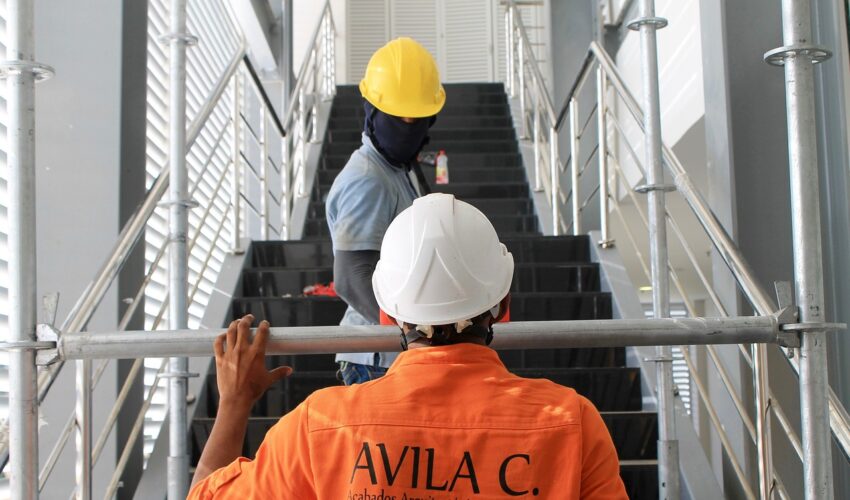The fast-paced world of construction thrives on swift and decisive solutions to disagreements. Adjudication, a formal dispute resolution process, offers a mechanism for settling construction disputes quickly and cost-effectively. However, a crucial question remains: how are the adjudicator’s decisions enforced if a party fails to comply? In this article, Enforcement Of Adjudication Decisions, we will delve deeper into the subject.
Please click here to find out more about our Construction Law services
Free Initial Telephone Discussion
For a free initial discussion with a member of our New Enquiries Team, get in touch with us today. We are experienced in dealing with all the legal aspects of adjudication in construction and once instructed, we will review your situation and discuss the options open to you in a clear and approachable manner. Early expert legal assistance can help ensure you are on the best possible footing from the start and also avoid the stress of dealing with these issues on your own. Simply call us on 0345 901 0445 or click here to make a free enquiry and a member of the team will get back to you.
Understanding Adjudication: A Fast-Track Approach
Adjudication is a mandatory form of dispute resolution in construction contracts in England and Wales. It allows parties to a construction contract to refer their disagreements to an independent adjudicator who makes a non-binding but enforceable decision. Here’s a breakdown of the key aspects:
- Initiating Adjudication: A formal notice of adjudication is served by one party to the other, outlining the nature of the dispute.
- The Adjudication Process: The adjudicator conducts a streamlined process to gather evidence and submissions from both parties before issuing a decision, typically within 28 days.
- Enforceable Decision: The adjudicator’s decision is binding on both parties until the dispute is finally settled through litigation, arbitration, or agreement.
Enforcement Mechanisms for Adjudication Decisions
While adjudication decisions are not final judgments of a court, they can be enforced through various legal mechanisms:
- Summary Enforcement: This is the most common method. An application is made to the Technology and Construction Court (TCC) for summary judgment, which essentially converts the adjudicator’s decision into a court order enforceable through bailiffs. The TCC will only overturn the adjudicator’s decision on limited grounds, such as serious procedural errors or bias.
- Enforcement by way of Charging Order: If the losing party owns property, a charging order can be placed on it, creating a security interest that allows the successful party to recover the adjudicator’s award from the eventual sale of the property.
- Enforcement by way of Attachment of Earnings: As a last resort, in rare cases, the court may order attachment of earnings from the debtor’s salary to enforce the adjudicator’s decision.
Blackstone Solicitors: Your Partner in Effective Enforcement
At Blackstone Solicitors, our construction law specialists possess a wealth of experience in handling the enforcement of adjudication decisions. We can assist you with:
- Assessing the enforceability of an adjudication decision: We will analyze the adjudicator’s decision and advise on the most appropriate enforcement method for your specific case.
- Preparing and submitting applications for summary enforcement: Our team will ensure your application is robust and compliant with court procedures, maximizing your chances of a successful outcome.
- Litigating disputes arising from enforcement challenges: In the event of the other party contesting enforcement, we will represent you in court and advocate for your position.
- Advising on alternative enforcement options: We will explore alternative methods like attachment of earnings or charging orders, depending on the circumstances.
Considerations for Effective Enforcement
Several factors can influence the success of enforcing an adjudication decision:
- Strength of the Adjudicator’s Decision: A well-reasoned and legally sound decision from the adjudicator increases the likelihood of enforcement.
- Prompt Action: Early action to initiate enforcement proceedings is crucial to prevent the other party from dissipating assets.
- Legal Representation: Engaging a solicitor experienced in construction law ensures your enforcement strategy is effective and maximizes your chances of recovering what is owed.
Conclusion
While adjudication offers a swift method for resolving construction disputes, the enforcement of the adjudicator’s decision remains a crucial step. At Blackstone Solicitors, we are committed to providing you with the legal expertise necessary to navigate the enforcement process effectively and secure a favourable outcome. Contact us today to discuss your specific case and explore how we can help you enforce an adjudication decision and recover what is rightfully yours.
How we can help
We have a proven track-record of helping clients deal with the legal implications of adjudication in a construction project. We will guide you through all the necessary legal due diligence in a comprehensive and timely manner and support and advise you with all the negotiations. We firmly believe that with the right solicitors by your side, the entire process will seem more manageable and far less daunting.
Please click here to find out more about our construction legal services.
How to Contact our Construction Solicitors
It is important for you to be well informed about the issues and obstacles you are facing. However, expert legal support is crucial in terms of saving you money and ensuring you achieve a positive outcome.
To speak to our Construction solicitors today, simply call us on 0345 901 0445 , or allow a member of the team to get back to you by filling in our online contact form. We are well known across the country and can assist wherever you are based. We also have offices based in Cheshire and London.
Disclaimer: This article provides general information only and does not constitute legal advice on any individual circumstances.



